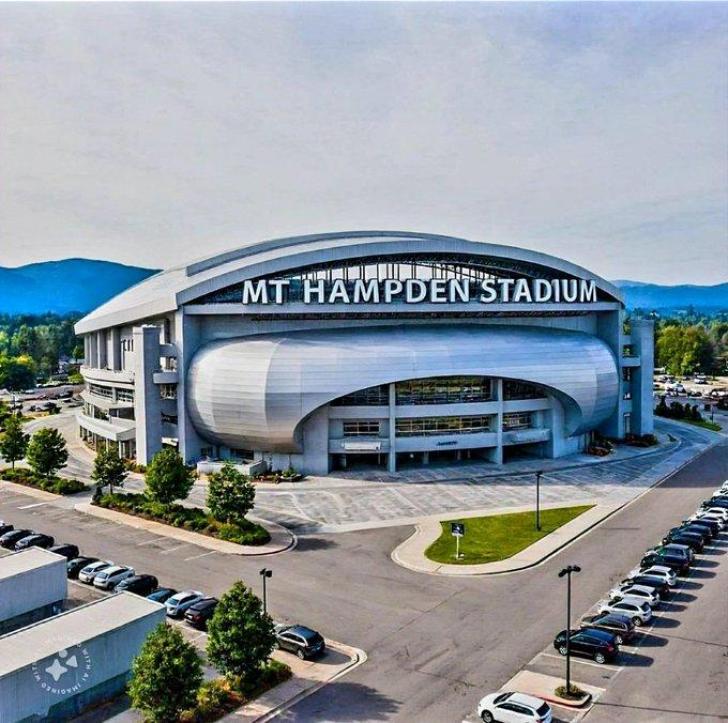News / National
Zimbabwe govt plans to build new stadium in Mt Hampden
04 Dec 2024 at 08:06hrs |
14 Views

In a bid to address the country's long-standing sports infrastructure challenges, Zimbabwe's Cabinet has approved a plan to invite private sector investment for the development, refurbishment, and maintenance of sports stadia across the nation. This move comes as part of efforts to improve the state of the country's sports facilities, with a particular focus on the construction of a new football stadium in the New City at Mt Hampden, Harare.
Following a Cabinet meeting held yesterday, the government outlined the strategy aimed at overhauling Zimbabwe's sports infrastructure. The proposal was presented by Honourable Eng. Daniel Garwe, Minister of Local Government and Public Works. The initiative includes leveraging various funding models, such as the Built-Operate-Transfer (BOT) approach, and seeking collaboration with the private sector for the development of modern stadia.
Key highlights of the plan include:
1. New Stadium at Mt Hampden: The priority project is the construction of a new stadium in the New City, located at Mt Hampden, Harare. This new facility is expected to become a major venue for international football matches, addressing the country's embarrassing lack of a FIFA-approved stadium.
2. Refurbishment of Existing Stadia: Several key stadiums around the country are set to be renovated and upgraded, including Dzivarasekwa, Gwanzura, and Mabvuku in Harare, as well as Barbourfields, Luveve, and White City in Bulawayo. Additional refurbishments are planned for Ascot in Gweru and Chipadze in Bindura.
3. Grassroots Sporting Facilities: The government also plans to develop grassroots sporting facilities to foster talent from the ground up. This will allow for greater participation in sports and the creation of a more sustainable sports ecosystem.
4. Government-Private Sector Collaboration: The government is committed to guaranteeing land for sports projects and will collaborate with the private sector to fund the development of the stadia. This includes the utilization of the FIFA Forward 2.0 Funding Initiative, which aims to support football infrastructure worldwide.
5. National Sports Stadium Refurbishment: The refurbishment of the National Sports Stadium in Harare to meet Confederation of African Football (CAF) approved standards is already at an advanced stage. This will allow the stadium to host international football and other sporting events in line with international standards.
In a statement released after the meeting, Cabinet emphasized the importance of the initiative in transforming the country's sports facilities to meet global standards. "Cabinet approved strategies aimed at developing, refurbishing, upgrading, repairing, and maintaining the country's sports stadia, ensuring that they are suitable for hosting international sporting events," the statement read.
The move is seen as a crucial step towards elevating Zimbabwe's sports sector, especially in football, where the national team has struggled to play in suitable stadiums. The lack of FIFA-approved facilities has hampered the country's ability to host international matches, a situation that the government hopes to resolve through this new investment initiative.
The announcement has been met with optimism from sports enthusiasts, who are hopeful that the development of modern sports infrastructure will contribute to the growth of sport in Zimbabwe and provide better opportunities for local athletes to compete at higher levels.
Following a Cabinet meeting held yesterday, the government outlined the strategy aimed at overhauling Zimbabwe's sports infrastructure. The proposal was presented by Honourable Eng. Daniel Garwe, Minister of Local Government and Public Works. The initiative includes leveraging various funding models, such as the Built-Operate-Transfer (BOT) approach, and seeking collaboration with the private sector for the development of modern stadia.
Key highlights of the plan include:
1. New Stadium at Mt Hampden: The priority project is the construction of a new stadium in the New City, located at Mt Hampden, Harare. This new facility is expected to become a major venue for international football matches, addressing the country's embarrassing lack of a FIFA-approved stadium.
2. Refurbishment of Existing Stadia: Several key stadiums around the country are set to be renovated and upgraded, including Dzivarasekwa, Gwanzura, and Mabvuku in Harare, as well as Barbourfields, Luveve, and White City in Bulawayo. Additional refurbishments are planned for Ascot in Gweru and Chipadze in Bindura.
4. Government-Private Sector Collaboration: The government is committed to guaranteeing land for sports projects and will collaborate with the private sector to fund the development of the stadia. This includes the utilization of the FIFA Forward 2.0 Funding Initiative, which aims to support football infrastructure worldwide.
5. National Sports Stadium Refurbishment: The refurbishment of the National Sports Stadium in Harare to meet Confederation of African Football (CAF) approved standards is already at an advanced stage. This will allow the stadium to host international football and other sporting events in line with international standards.
In a statement released after the meeting, Cabinet emphasized the importance of the initiative in transforming the country's sports facilities to meet global standards. "Cabinet approved strategies aimed at developing, refurbishing, upgrading, repairing, and maintaining the country's sports stadia, ensuring that they are suitable for hosting international sporting events," the statement read.
The move is seen as a crucial step towards elevating Zimbabwe's sports sector, especially in football, where the national team has struggled to play in suitable stadiums. The lack of FIFA-approved facilities has hampered the country's ability to host international matches, a situation that the government hopes to resolve through this new investment initiative.
The announcement has been met with optimism from sports enthusiasts, who are hopeful that the development of modern sports infrastructure will contribute to the growth of sport in Zimbabwe and provide better opportunities for local athletes to compete at higher levels.
Source - online
Join the discussion
Loading comments…
































